Happy Wednesday! Did you know that Mother’s Day is four days away? We hear a Dispatch membership is at the top of every mom’s wish list this year.
Quick Hits: Today’s Top Stories
- President Donald Trump met with Canadian Prime Minister Mark Carney at the White House on Tuesday, a week after Canada voted to keep Carney and his Liberal Party in the government majority. While Trump rejected any notion that he might relax his tariffs on Canadian imports, he said in the meeting with Carney that “we're going to be friends with Canada.” Meanwhile, Carney pushed back on Trump’s musings about Canada becoming the 51st U.S. state. His country “won’t be for sale, ever,” Carney said, shortly after Trump referred to the U.S.-Canada border as “artificial.”
- In the same meeting, Trump also shared news that the U.S. will stop its attacks on the Iranian-backed, Yemen-based Houthis terrorists, saying that they “have announced to us” that they will no longer attack commercial ships in the Red Sea. Oman’s Foreign Minister Badr bin Hamad Al Busaidi tweeted hours later that both sides “will no longer target each other,” though the Houthis have not publicly commented on the matter. “They have capitulated, but more importantly, we will take their own word,” Trump said. “They’ve said, ‘Please don’t bomb us anymore, and we’re not going to attack your ships.’” According to information supplied by the Pentagon, U.S. forces have struck more than 1,000 Houthi targets since mid-March, when it launched Operation Rough Rider to counter continuous attacks on commercial vessels.
- India fired missiles at nine sites in Pakistan and Pakistan-controlled Kashmir early Wednesday morning, targeting what the Indian government called “terrorist infrastructure” where “terrorist attacks against India have been planned and directed.” Pakistan said the attack killed 26 people, which it deemed an act of war. Following the attack, which India’s government said did not target Pakistan’s military facilities, India’s army tweeted, “Justice is Served.” Meanwhile, a spokesperson for the Pakistani Army said it “will respond to this at a time and place of its own choosing.” Relations between the two countries have deteriorated since a terrorist attack two weeks ago in Indian-controlled Kashmir left 26 tourists dead. Pakistan denied any involvement in the attack, but India blamed it on Pakistani-based terrorist groups.
- The Israel Defense Forces (IDF) confirmed on Tuesday that its air force attacked Houthi terrorist strongholds in Yemen’s capital city, Sanaa, including its primary airport. Houthi-controlled media reported that three people were killed in the airstrike. The IDF said it destroyed terrorist infrastructure embedded within the airport—leading to the airport’s “complete shutdown”—and also struck central power stations and a concrete factory in the region. The attack, which came one day after an Israeli airstrike targeting Houthis in Yemen’s Al-Hudaydah port city, was in retaliation for Sunday’s Houthi missile attack on Israel’s largest airport, the IDF added.
- The Supreme Court ruled on Tuesday that the Trump administration can reinstate its ban on transgender troops serving in the U.S. military, reversing a federal district judge’s order pausing the ban. At the direction of a Trump-issued executive order, the Defense Department in February banned “individuals who have a current diagnosis or history of, or exhibit symptoms consistent with, gender dysphoria” from military service. In March, U.S. District Judge Benjamin Settle ruled that the Trump administration’s policy was unconstitutional under the 14th Amendment’s Equal Protection Clause, which the White House quickly appealed. The Supreme Court’s order reversed an April federal appeals court decision that Trump’s ban would remain paused until that court ruled on the administration’s appeal until the appeal of the initial ruling is handed down. Justices Sonia Sotomayor, Elena Kagan, and Ketanji Brown Jackson all dissented.
- India and the United Kingdom agreed to a trade deal on Tuesday that will have both countries lowering tariffs on a broad range of imported goods. India agreed to reduce duty rates for about 90 percent of its tariffed imports from the U.K.—the majority of which will be “fully tariff-free within a decade,” according to the U.K. government—and also slashed tariffs on British cars, whiskey, and gin. In exchange, the U.K. agreed to lower tariffs on clothes, shoes, jewelry, and food products imported from India. According to the U.K. government, the deal will increase bilateral trade with India by 25.5 billion pounds, equivalent to about $34 billion.
- Russian officials said on Tuesday that Ukrainian drone strikes across the country temporarily closed 13 airports, including four airports near Moscow. The Russian capital is planning to host a May 9 parade commemorating the anniversary of Nazi Germany’s 1945 surrender, which Russia said will be attended by about 20 world leaders, including Chinese President Xi Jinping. Russian President Vladimir Putin has proposed a three-day cease-fire for the occasion. However, Ukrainian President Volodymyr Zelensky has maintained support for a 30-day offer, and called Putin’s reduced counteroffer a “theatrical play.” Meanwhile, Russia’s Defense Ministry said on Tuesday it had completed a prisoner exchange with Ukraine, swapping 205 prisoners of war each, in an arrangement the United Arab Emirates helped mediate.
- Germany’s parliament, the Bundestag, voted on Tuesday to seat Friedrich Merz of the country’s right-of-center Christian Democratic Union party as the next German chancellor. Although Merz’s political coalition controls 328 seats of the 630-seat legislative body, he failed to reach a majority of support in the first round of secret-ballot voting—garnering only 310 votes—marking the first time in post-World War II German history that the eventual chancellor did not win in the first round of voting. Merz won in the second-round of voting with 325 votes, and was sworn in as Germany’s chancellor later that day. Merz replaces Olaf Scholz, of the center-left Social Democratic Party, who in December 2024 was voted out of office.
Reconciliation Rigmarole
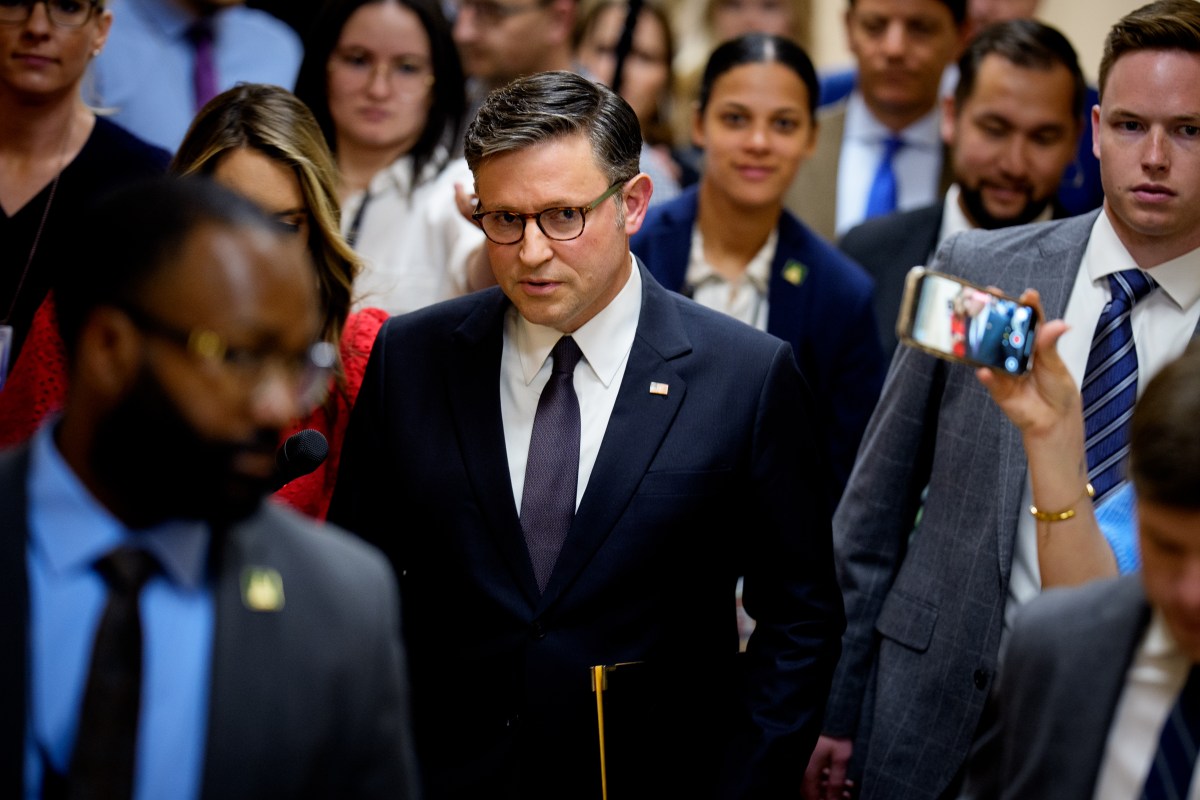
We still don’t know exactly what will be in Republicans’ “one big, beautiful” reconciliation megabill that they hope to pass through the House of Representatives by Memorial Day. Most assumed we would have an idea by this week, as three committees—Agriculture; Energy and Commerce; and Ways and Means—were supposed to hold key markups in which they would vote to advance their parts of the bill.
As fate—or unruly majorities—would have it, leadership ...
As a non-paying reader, you are receiving a truncated version of The Morning Dispatch. You can read our 1,380-word item on congressional Republicans’ attempts to pass a budget in the members-only version of TMD.
Today’s Must-Read
As a child, I would wake to the scent of rice porridge and the soft hiss of static giving way to a familiar jingle—the theme song of Voice of America. In the kitchen, my grandmother sat beside a battered radio, its bent antenna jutting upward like a crooked finger reaching for the sky. Every morning, with the solemnity of a parishioner at prayer, she tuned in to VOA Khmer and Radio Free Asia. The broadcasts came through in a haunted crackle, their voices urgent, truthful, and distant—like hope being whispered across a border. That sound is now gone—or soon will be.
Toeing the Company Line
The Last Interesting Republican
Can Brian Kemp pull a Nixon in 2028?
Trump Is a Socialist
The president thinks the U.S. is one big Macy’s—with him in charge.
Right Ends, Wrong Means
Trump has identified some real problems, but he’s abusing his power in trying to correct them.
The Allegory of the Trade
The two-doll problem.
Worth Your Time
- In the Wall Street Journal, Walter Russell Mead writes that one continent needs to be getting more attention on the world stage: Africa. “With major wars raging in Sudan and the Democratic Republic of Congo, increased Chinese and Russian activity, jihadi terrorists gaining ground in many places, and American foreign aid on the chopping block, the failed U.S. policy in Africa is past due for some new thinking … The idea that economic potential makes Africa a continent of the future that we neglect at our peril is deeply misguided. Africa has grown economically, and that growth will continue. Should Africa ever realize its potential, Americans will pay it more attention. But until that happens, Africa’s hypothetical future riches will command little attention from the American public.” What problems require American consideration? “Weak African states face increasingly existential challenges. The question is less whether particular countries are democratic or not, and more whether they have governments that can actually work,” Mead explains. “In other places, ‘tribalism’—which would be called ‘nationalism’ elsewhere—is gaining traction as the artificial postcolonial states enter their sixth or seventh decade of comprehensive failure.”
- Writing in Reason, Marc Oestreich explores what data server farms and new sports stadiums have in common. “The recent announcement that Microsoft is investing over a billion dollars into a vast new data center campus in La Porte, [ Indiana], is expected to be transformational for the town of 22,000 people. Microsoft was given a 40-year tax abatement on equipment, a renewable state sales tax exemption through 2068, and just $2.5 million of payments in lieu of taxes (PILOT) over four years—roughly 30 percent of what it would normally owe. After that? Nothing. Local utilities would cover the infrastructure.” For Oestreich, this sounds familiar. “Just 60 miles up the toll road sits Soldier Field, home of the Chicago Bears. The stadium’s 2002 post-modern renovation cost $587 million, $387 million of which was shouldered by taxpayers. Two decades and two dozen quarterbacks later, Chicago only has $640 million (thanks to $256 million in interest) left to pay,” Oestreich writes. “Today’s stadium boondoggle is a server farm … The sales pitch is nearly identical to the stadium era: ‘It’ll create jobs. It’ll put us on the map. It’s worth the investment.’”
Presented Without Comment
NBC News: Trump Administration To Pay $1,000 To Undocumented Immigrants Who Self-Deport
The federal agency announced Monday that those who use the CBP Home app to voluntarily leave the United States will receive assistance “to facilitate travel back to their home country” and $1,000 “paid after their return to their home country has been confirmed through the app.”
Also Presented Without Comment
The New York Times: Proud Boys’ Ex-Leader Thanks Trump for Pardon at Mar-a-Lago Encounter
Also Also Presented Without Comment
Reason: New Oklahoma Curriculum Requires Students To Learn 2020 Election Fraud Conspiracies
Under the state's new curriculum, high school students will be taught to “identify discrepancies in 2020 elections results by looking at graphs and other information, including the sudden halting of ballot-counting in select cities in key battleground states, the security risks of mail-in balloting, sudden batch dumps, an unforeseen record number of voters, and the unprecedented contradiction of ‘bellwether county’ trends.”
In the Zeitgeist
The Dispatch Slack channel recently discussed the various Star Wars movies and shows, and this got a couple of us on the younger side reminiscing about the animated Clone Wars TV show that we grew up watching.
Now, two villains from that show return in a new animated anthology series released this week on Disney+, Star Wars: Tales of the Underworld.

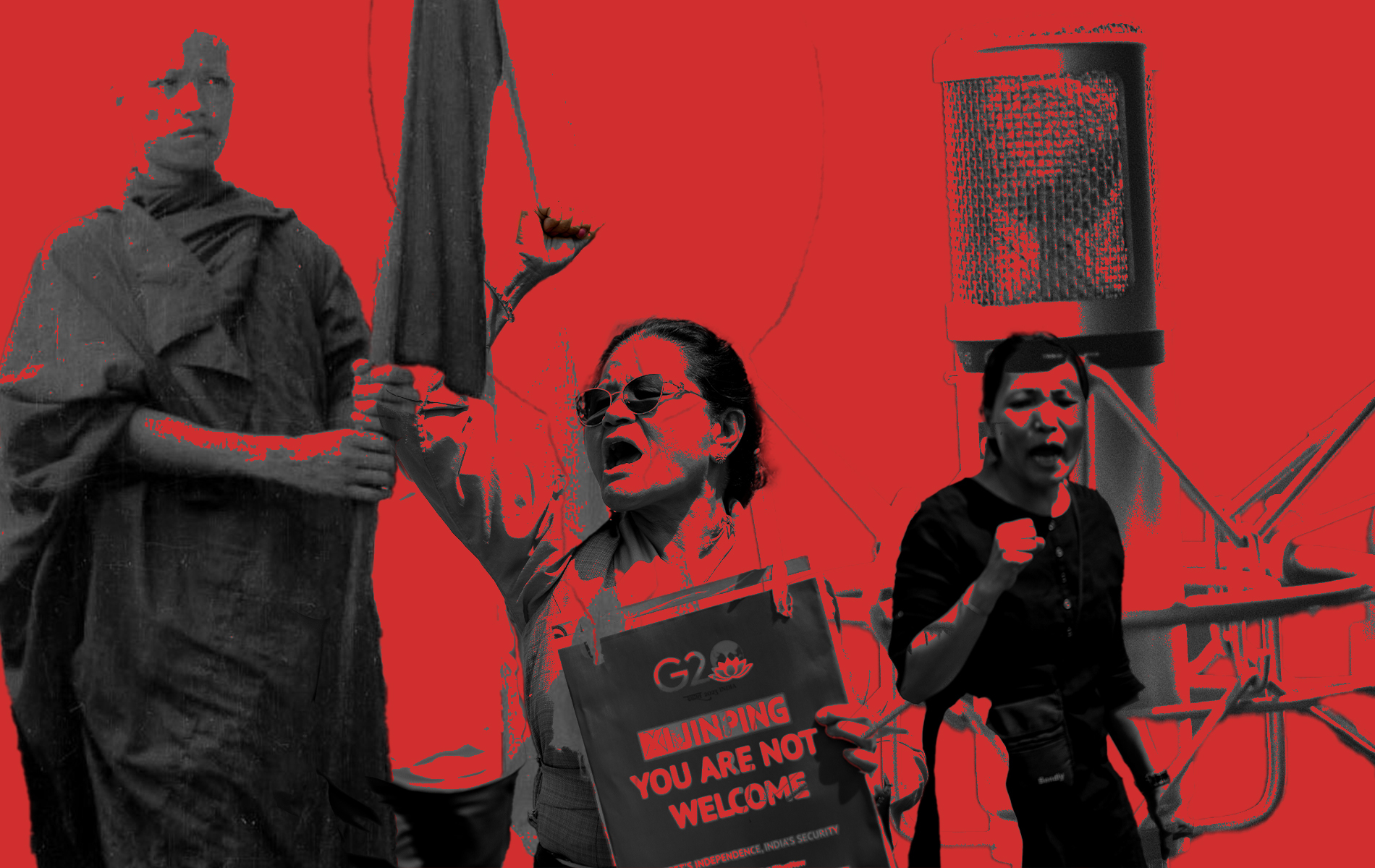

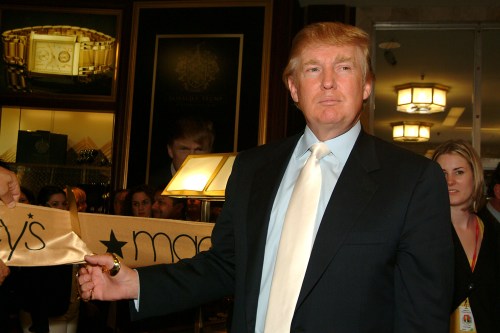
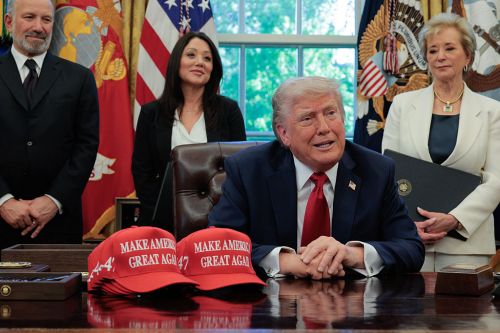




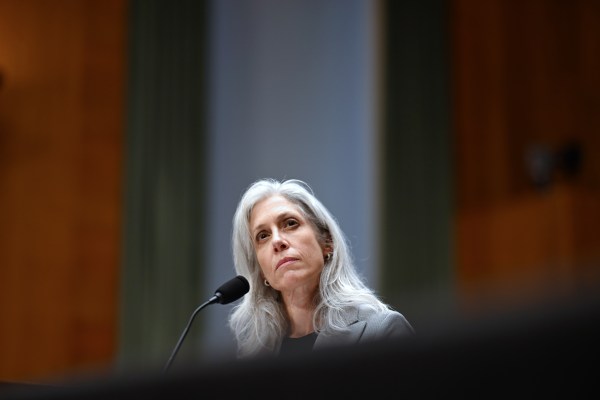
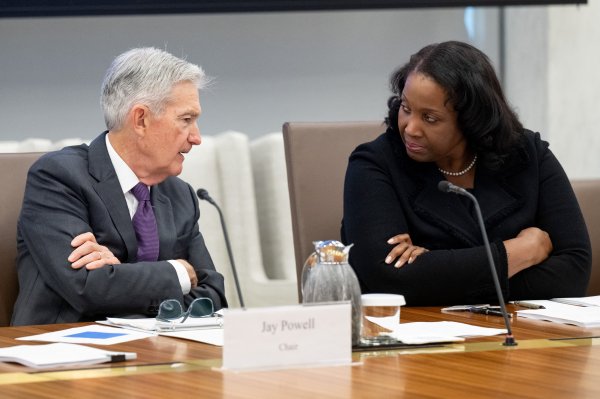

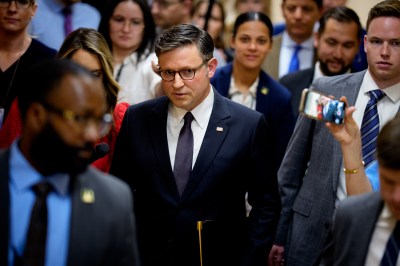
Please note that we at The Dispatch hold ourselves, our work, and our commenters to a higher standard than other places on the internet. We welcome comments that foster genuine debate or discussion—including comments critical of us or our work—but responses that include ad hominem attacks on fellow Dispatch members or are intended to stoke fear and anger may be moderated.
With your membership, you only have the ability to comment on The Morning Dispatch articles. Consider upgrading to join the conversation everywhere.